
IT certifications are an essential part of the tech industry, as they help professionals demonstrate their skills and knowledge to potential employers. With so many options available, it can be challenging to determine which certifications are worth pursuing.
In this article, we will explore the top 10 IT certifications in the world, covering a range of specializations and skill levels.
The list includes certifications such as DevOps Certified Professional (DCP), DevSecOps Certified Professional (DSOCP), SRE Certified Professional (SRECP), AiOps Certified Professional, DataOps Certified Professional, MlOps Certified Professional, Certified Kubernetes Administrator (CKA), Master in DevOps Engineering (MDE), AWS Certified DevOps Professional, and Master in Data Science.
Each of these certifications offers unique benefits and can help professionals advance their careers in various ways.
1. DevOps Certified Professional (DCP)
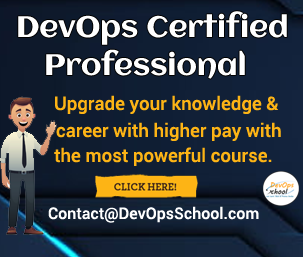
DevOps Certified Professional (DCP) is a certification that validates an individual’s expertise in DevOps practices, principles, and tools. It is a highly sought-after certification for IT professionals who want to demonstrate their ability to manage and automate IT infrastructure and software development processes.
The DCP certification is designed for IT professionals who have experience in software development, IT operations, and automation. The certification covers a wide range of topics, including continuous integration and delivery, infrastructure automation, containerization, monitoring, and testing.
To obtain the DCP certification, candidates must pass an exam that tests their knowledge and skills in DevOps practices and tools. The exam is designed to assess the candidate’s ability to design, implement, and manage DevOps processes and tools.
The DCP certification is recognized by many organizations and is a valuable asset for IT professionals who want to advance their careers in DevOps. It is also a great way for organizations to identify individuals who have the skills and knowledge to implement and manage DevOps practices and tools.
Overall, the DCP certification is an excellent investment for IT professionals who want to stay ahead of the curve in the ever-evolving world of DevOps.
2. DevSecOps Certified Professional

DevSecOps Certified Professional (DSOCP) is a certification that focuses on integrating security practices in the DevOps process. It is a comprehensive certification that covers the entire DevSecOps lifecycle, from planning and design to testing and deployment.
DSOCP certification is designed for security professionals, developers, and IT operations personnel who are responsible for ensuring the security of applications and infrastructure. The certification provides candidates with the skills and knowledge to identify and mitigate security risks, implement security controls, and automate security testing.
The certification covers various topics, including secure coding practices, vulnerability management, threat modeling, security testing, and compliance. The DSOCP certification is offered by various organizations, including the DevOps Institute and EC-Council.
To obtain the DSOCP certification, candidates must pass a certification exam. The exam tests candidates’ knowledge of DevSecOps principles, practices, and tools. Candidates must also have practical experience in implementing DevSecOps practices in real-world scenarios.
In summary, the DSOCP certification is a valuable credential for professionals who want to enhance their skills in integrating security in the DevOps process. It provides candidates with the knowledge and skills to implement security controls, automate security testing, and mitigate security risks.
3. SRE Certified Professional

SRE Certified Professional (SRECP) is a certification course that teaches the principles and practices of Site Reliability Engineering (SRE). SRE is a software engineering approach to IT operations that focuses on managing systems, addressing problems, and automating operational duties. The SRECP certification course is designed to help IT professionals learn the skills necessary to manage critical services reliably and economically.
The SRECP certification course covers a range of topics, including service level objectives (SLOs), error budgets, monitoring, alerting, incident response, and post-incident reviews. The course also covers the use of automation tools such as Ansible, Terraform, and Kubernetes.
Upon completion of the SRECP certification course, IT professionals will have a thorough understanding of SRE principles and practices and be able to apply them in real-world situations. They will also be able to demonstrate their knowledge by passing the SRECP certification exam.
The SRECP certification is recognized globally as a standard for IT professionals who want to specialize in SRE. It is an excellent certification for IT professionals who want to advance their careers in SRE or DevOps. The SRECP certification is offered by DevOpsSchool, and the course is available online.
In summary, the SRE Certified Professional (SRECP) certification course is an excellent choice for IT professionals who want to specialize in Site Reliability Engineering. The course covers a range of topics, including SLOs, error budgets, monitoring, alerting, incident response, and post-incident reviews. Upon completion of the course, IT professionals will have a thorough understanding of SRE principles and practices and be able to apply them in real-world situations.
4. AiOps Certified Professional
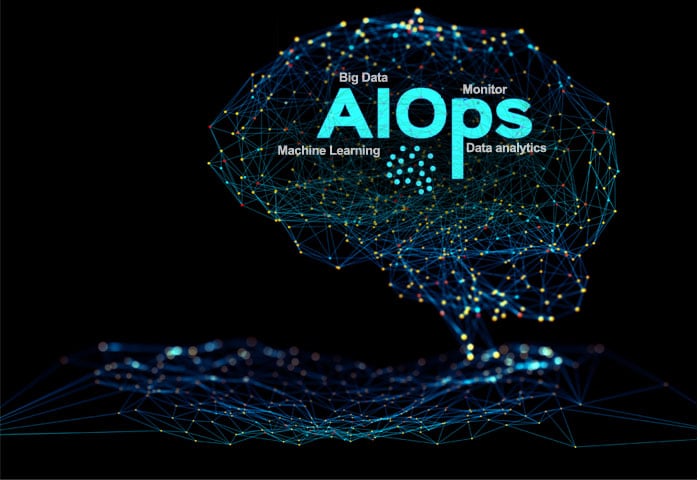
AiOps Certified Professional is a certification program that focuses on the integration of artificial intelligence (AI) into IT operations management. This certification validates the skills and knowledge required to leverage big data, analytics, and machine learning capabilities to simplify IT ops management.
As per DevOpsSchool, the AIOps program will make an individual an expert in this paradigm shift and help them market themselves as an expert and grow their career. The AiOps Certified Professional program covers the origins of AIOps, including the history behind the term, patterns that preceded it, and the technology context in which it has evolved.
The AiOps Certified Professional certification program is designed for IT professionals who seek to gain expertise in AIOps. The certification program covers topics such as AIOps concepts, AIOps benefits, AIOps challenges, AIOps tools, and AIOps use cases.
The AiOps Certified Professional certification program is an excellent choice for IT professionals who want to stay ahead of the curve in the rapidly evolving IT operations landscape. By obtaining this certification, IT professionals can demonstrate their knowledge and skills in AIOps and differentiate themselves in the job market.
5. DataOps Certified Professional
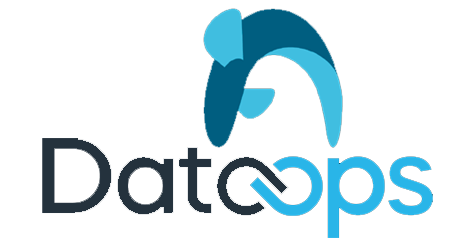
DataOps is a data management methodology that emphasizes communication, collaboration, and integration between data scientists, data engineers, and other stakeholders involved in the data pipeline. The DataOps Certified Professional (DOCP) certification is designed for professionals who want to demonstrate their expertise in implementing and managing DataOps processes.
To obtain the DOCP certification, candidates must pass an exam that covers topics such as data integration, data quality, data governance, and data security. The exam is designed to test candidates’ knowledge of DataOps best practices and their ability to apply them in real-world scenarios.
The DOCP certification is offered by various organizations, including the DataOps Consortium and DevOps Institute. It is a valuable credential for professionals who work in data management, data engineering, and related fields. The certification demonstrates that the holder has a deep understanding of DataOps principles and is capable of implementing them to improve data quality, reduce data processing time, and increase collaboration between data stakeholders.
In addition to the DOCP certification, there are other certifications that are relevant to DataOps professionals, such as the MLOps Certified Professional (MLOCP) and the Kubernetes Certified Administrator (CKA) certification. These certifications demonstrate a candidate’s expertise in machine learning operations and container orchestration, respectively, which are important components of a modern DataOps pipeline.
Overall, the DOCP certification is a valuable credential for professionals who work in data management and related fields. It demonstrates a candidate’s expertise in DataOps best practices and their ability to apply them to improve data quality, reduce processing time, and increase collaboration between data stakeholders.
6. MlOps Certified Professional
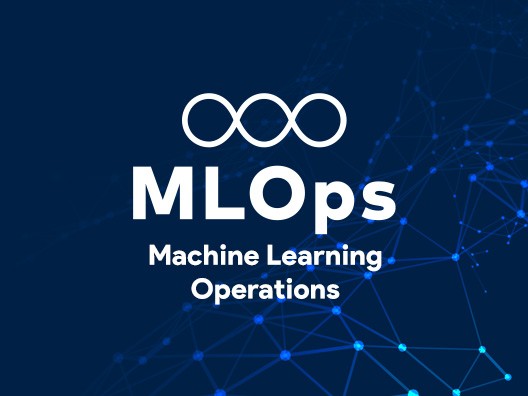
MlOps Certified Professional (MLOCP) is a certification program designed for professionals who work with Machine Learning Operations (MLOps). MLOps is a practice that combines machine learning, DevOps, and data engineering to build, deploy, and manage machine learning models in production.
The MLOCP certification program covers a range of topics, including data preparation, model training, deployment, monitoring, and management. The program also covers best practices for building scalable and reliable machine learning pipelines.
To earn the MLOCP certification, candidates must pass an exam that tests their knowledge of MLOps concepts and practices. The exam consists of multiple-choice questions and requires a minimum passing score.
MLOCP certification is valuable for professionals who work with machine learning models in production environments. It demonstrates that they have the skills and knowledge to build, deploy, and manage machine learning pipelines at scale.
Some of the benefits of earning the MLOCP certification include:
Demonstrating expertise in MLOps practices
Enhancing career prospects and earning potential
Building credibility with employers and clients
Access to a community of MLOps professionals
In summary, the MLOCP certification program is a valuable credential for professionals who work with machine learning models in production environments. It demonstrates their expertise in MLOps practices and can enhance their career prospects and earning potential.
7. Certified Kubernetes Administrator
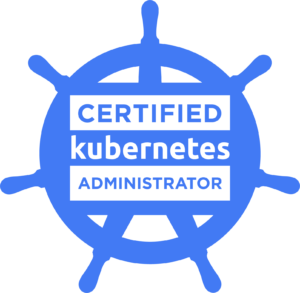
Certified Kubernetes Administrator (CKA) is a hands-on certification program offered by the Cloud Native Computing Foundation (CNCF) that validates an individual’s skills in designing, deploying, and managing Kubernetes clusters. The CKA certification is ideal for professionals who want to demonstrate their expertise in Kubernetes and its ecosystem.
The CKA certification exam is a performance-based test that evaluates the candidate’s ability to perform tasks commonly performed by Kubernetes administrators. The exam consists of 24 performance-based tasks that need to be completed within 3 hours. The tasks are designed to test the candidate’s ability to perform Kubernetes operations such as deploying applications, troubleshooting, and managing the cluster.
The CKA certification is highly sought after by organizations that use Kubernetes in their production environments. The certification validates an individual’s skills in managing Kubernetes clusters and ensures that the candidate has the necessary skills to deploy and manage Kubernetes clusters in production environments.
To prepare for the CKA certification exam, candidates can take online courses, attend training sessions, or use study materials provided by the CNCF. The CNCF also offers a Kubernetes Certification Program that provides a comprehensive curriculum to help candidates prepare for the CKA certification exam.
In conclusion, the CKA certification is an excellent choice for professionals who want to demonstrate their expertise in Kubernetes and its ecosystem. The certification is highly sought after by organizations that use Kubernetes in their production environments and provides an excellent opportunity for professionals to advance their careers in the field of Kubernetes administration.
8. Master in DevOps Engineering
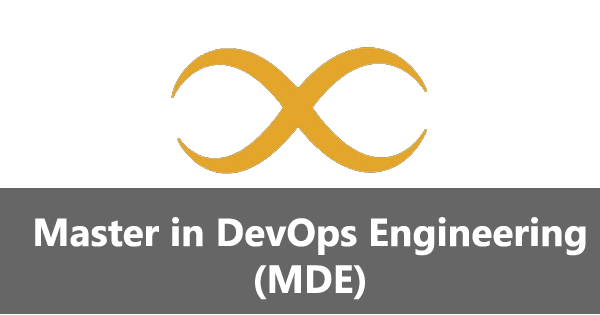
The Master in DevOps Engineering (MDE) is a certification program that focuses on advanced DevOps practices and principles. The certification is designed for professionals who want to enhance their skills and knowledge in DevOps, including software developers, system administrators, and IT managers.
The MDE program covers a wide range of topics, including continuous integration and deployment, infrastructure automation, containerization, monitoring, and collaboration. The program emphasizes hands-on experience, allowing participants to work on real-world projects and gain practical skills.
The MDE program is offered by various institutions, including universities, online learning platforms, and training providers. The program duration varies depending on the institution, but typically takes 6-12 months to complete. The program may also require participants to have prior experience in software development or IT operations.
Upon completion of the MDE program, participants will have a deep understanding of DevOps principles and practices, as well as the skills to implement and manage DevOps processes in their organizations. The certification is highly regarded in the IT industry and can lead to better job opportunities and higher salaries.
Overall, the Master in DevOps Engineering certification is an excellent choice for professionals who want to advance their careers in the field of DevOps. With its comprehensive curriculum and emphasis on hands-on experience, the MDE program provides participants with the skills and knowledge they need to succeed in today’s fast-paced IT environment.
9. AWS Certified DevOps Professional
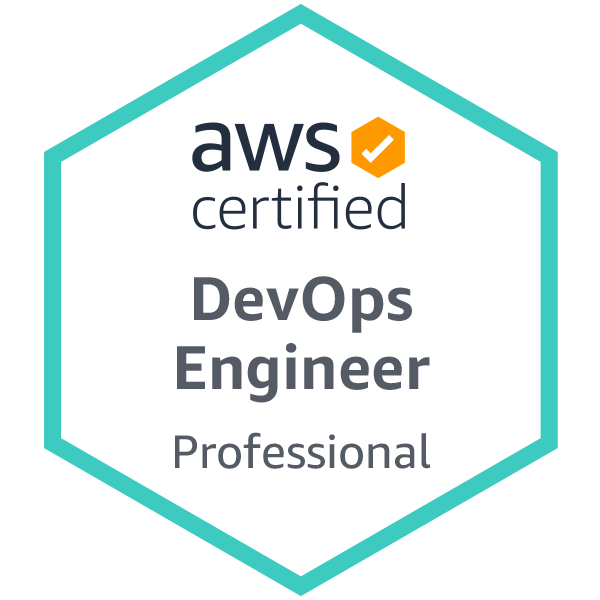
The AWS Certified DevOps Professional certification is intended for individuals with two or more years of experience provisioning, operating, and managing AWS environments. This certification from Amazon Web Services shows employers you can test and deploy AWS applications and infrastructure.
To earn this certification, candidates must pass a 180-minute exam that covers a range of topics, including continuous delivery and automation, monitoring and logging, security, and infrastructure as code. Candidates must also have experience with AWS services such as EC2, S3, and CloudFormation.
There are several courses and practice tests available online to prepare for the exam. One highly recommended course is the AWS Certified DevOps Engineer Professional 2023 – Hands-On! This course offers 20 hours of hands-on lessons that allow users to pass the AWS certification exam with confidence.
Holders of this certification are in high demand, as more and more companies are adopting DevOps practices to streamline their software development processes. According to AWS, job listings requiring this certification have increased by 52% between Oct 2021 and Sept 2022.
Overall, the AWS Certified DevOps Professional certification is a valuable credential for IT professionals looking to advance their careers in the field of DevOps.
10. Master in Data Science
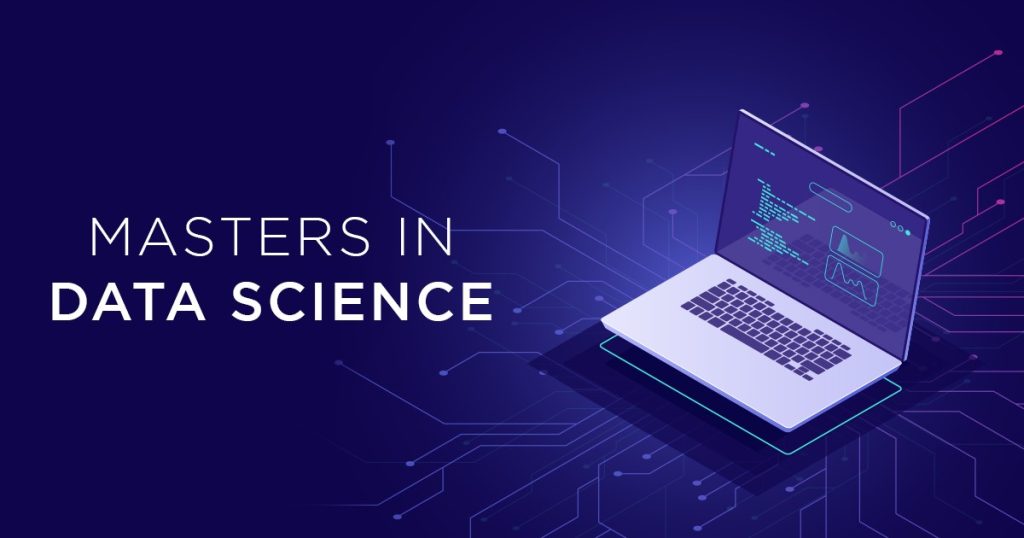
A Master in Data Science is a graduate-level program that provides students with advanced knowledge and skills in the field of data science. It is designed for individuals who want to deepen their understanding of data analysis, machine learning, and data visualization.
The program typically includes courses in statistics, programming, data mining, data visualization, and machine learning. Students also have the opportunity to work on real-world projects and gain hands-on experience with data analysis tools and techniques.
A Master in Data Science can lead to a wide range of career opportunities in industries such as finance, healthcare, marketing, and technology. Graduates can work as data scientists, data analysts, business analysts, data engineers, and more.
Some of the top universities offering a Master in Data Science include Carnegie Mellon University, Massachusetts Institute of Technology, University of California-Berkeley, and Stanford University. These programs are highly competitive and require a strong background in mathematics, statistics, and computer science.
Overall, a Master in Data Science is an excellent choice for individuals who want to pursue a career in the field of data science and want to acquire advanced knowledge and skills in this rapidly growing industry.
Frequently Asked Questions
What is a DevOps Certified Professional (DCP)?
A DevOps Certified Professional (DCP) is an IT professional who has demonstrated expertise in the principles and practices of DevOps, a software development methodology that emphasizes collaboration and communication between development and operations teams. DCPs typically have experience with tools and technologies such as Jenkins, Docker, and Kubernetes, and are able to design and implement automated deployment pipelines.
What is a DevSecOps Certified Professional (DSOCP)?
A DevSecOps Certified Professional (DSOCP) is an IT professional who has demonstrated expertise in the integration of security practices into the DevOps process. DSOCPs typically have experience with tools and technologies such as OWASP ZAP, SonarQube, and HashiCorp Vault, and are able to design and implement secure deployment pipelines.
What is an SRE Certified Professional (SRECP)?
An SRE Certified Professional (SRECP) is an IT professional who has demonstrated expertise in site reliability engineering (SRE), a discipline that focuses on ensuring the reliability and availability of software systems. SRECPs typically have experience with tools and technologies such as Prometheus, Grafana, and Istio, and are able to design and implement resilient and scalable systems.
What is an AiOps Certified Professional?
An AiOps Certified Professional is an IT professional who has demonstrated expertise in the application of artificial intelligence (AI) and machine learning (ML) to IT operations. AiOps Certified Professionals typically have experience with tools and technologies such as Elasticsearch, Kibana, and TensorFlow, and are able to design and implement intelligent monitoring and alerting systems.
What is a DataOps Certified Professional?
A DataOps Certified Professional is an IT professional who has demonstrated expertise in the principles and practices of DataOps, a methodology that emphasizes collaboration and communication between data engineers, data scientists, and operations teams. DataOps Certified Professionals typically have experience with tools and technologies such as Apache Airflow, Apache Spark, and Apache Kafka, and are able to design and implement efficient and scalable data pipelines.
What is an MlOps Certified Professional?
An MlOps Certified Professional is an IT professional who has demonstrated expertise in the principles and practices of MLOps, a methodology that emphasizes collaboration and communication between data scientists and operations teams in the development and deployment of machine learning models. MLOps Certified Professionals typically have experience with tools and technologies such as PyTorch, TensorFlow, and Kubeflow, and are able to design and implement automated machine learning pipelines.
What is Certified Kubernetes Administrator (CKA)?.
Kubernetes was originally created by Google. Now its driven by Cloud Native Compute Foundation (CNCF), It’s an open body, which provides and conduct exams to get the official certification for “Kubernetes Certified Administrator”. The purpose of the Kubernetes certification training Courses in Bangalore program is to provide assurance that CKAs have the skills, knowledge, and competency to perform the responsibilities of Kubernetes administrators Kubernetes Bangalore a powerful system for managing containerized applications across a cluster of nodes. It is developed by Google, for managing containerized applications in a clustered environment.
What is Master in DevOps Engineering (MDE)?
This “Masters in DevOps Engineering (MDE)” Program is the only course in the WORLD which can make you an expert and proficient Architect in DevOps, DevSecOps and Site Reliability Engineering (SRE) principles together. Our curriculum has been determined by comprehensive research on 10000+ job descriptions across the globe and epitome of 200+ years of industry experience.
Master in DevOps Engineering” program is structured in a way, whether you are an experienced IT professional or a college graduate, this course will help you to integrate all the real-world experience with all the important tools, specialization and job-ready skills.
What is AWS Certified DevOps Professional?
Amazon AWS is a container based secure cloud service platform that offers database storage and content delivery in software development. It offers Infrastructure as a Service (IaaS), Platform as a Service (Paas) and Software as a Service (Saas) together. It reduces costs of infrastructure such as servers. Companies used it’s best practices in security with the availability, integrity and confidentiality of your data and provides ‘end to end’ privacy and ‘end to end’ security.
Master in Data Science?
Data scientist is one of the best suited professions to thrive this century. It is digital, programming-oriented, and analytical. Therefore, it comes as no surprise that the demand for data scientists has been surging in the job marketplace.
Also you can choose the other world wide best certification courses with the help of this URL –
“Link to the certification”
https://devopsschool.com/certification/
Thanks,



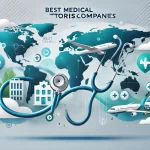


Leave a Reply
You must be logged in to post a comment.